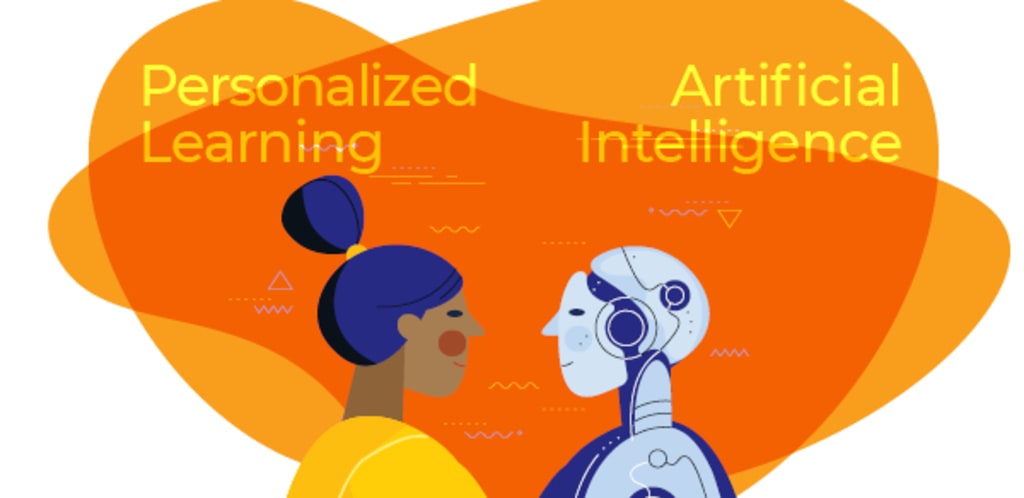Harnessing AI for Personalized Learning: The Future of Education
AI for Personalized Learning

Introduction to AI in Education
In recent years, the integration of artificial intelligence (AI) into various industries has sparked transformative changes, and education is no exception. This article explores how AI is revolutionizing education through personalized learning approaches, paving the way for a more adaptive and effective educational experience for students globally.
Understanding the Role of AI
AI in education refers to the use of algorithms and data-driven insights to customize learning experiences for individual students. This technology has evolved significantly, moving beyond mere automation to sophisticated applications that enhance teaching and learning processes.
Importance of Personalized Learning
Traditional education often struggles to meet the diverse needs of students, leading to varying levels of engagement and achievement. Personalized learning addresses these challenges by tailoring educational content, pace, and approach based on individual student profiles, preferences, and learning objectives.
Looking for reliable Statistics Assignment Help or Economics Assignment Help? Get expert assistance with your assignments from qualified tutors. 100% plagiarism-free solutions. Affordable rates. Contact us today!
AI Technologies Empowering Personalized Learning
Adaptive Learning Platforms
Adaptive learning platforms leverage AI to adjust the difficulty level and content of educational materials in real-time based on students' responses and performance. By analyzing data on learning patterns and outcomes, these platforms provide customized learning paths that maximize student comprehension and retention.
Intelligent Tutoring Systems (ITS)
Intelligent Tutoring Systems simulate personalized, one-on-one tutoring experiences using AI. These systems diagnose students' knowledge gaps, deliver targeted instruction, and provide immediate feedback, fostering a supportive learning environment across various subjects and skill levels.
Implementing AI in Educational Institutions
Overcoming Implementation Challenges
While the benefits of AI in education are substantial, integrating these technologies into existing educational frameworks requires careful planning and investment in infrastructure, resources, and educator training. Overcoming these challenges is crucial to realizing AI's full potential in enhancing teaching effectiveness and student learning outcomes.
Integrating artificial intelligence (AI) into educational institutions holds tremendous potential to enhance teaching effectiveness, improve learning outcomes, and create more personalized educational experiences for students. However, implementing AI requires careful planning, investment in infrastructure, and comprehensive training for educators to maximize its benefits. Implementing AI in education involves overcoming several challenges to ensure successful integration and adoption:
Infrastructure and Resource Requirements
AI implementation requires robust technological infrastructure capable of handling large volumes of data and supporting AI-driven applications. Educational institutions need to invest in hardware, software, and cloud computing services to support AI algorithms effectively. Additionally, ensuring reliable internet connectivity is crucial for seamless operation of AI-powered educational platforms and tools.
Training and Support for Educators
Educators play a pivotal role in leveraging AI to enhance teaching and learning experiences. Providing comprehensive training programs that familiarize teachers with AI technologies, their applications in the classroom, and strategies for integrating AI into lesson plans is essential. Educators should receive ongoing support to develop proficiency in using AI tools effectively and creatively to meet diverse learning needs.
Financial Investment and Sustainability
Implementing AI in education requires significant financial investment to procure AI technologies, maintain infrastructure, and sustain ongoing operational costs. Educational institutions must develop long-term financial strategies and secure funding sources to support AI initiatives and ensure their sustainability over time.
Case Studies of Successful Integration
Several educational institutions worldwide have successfully implemented AI-driven solutions to improve learning outcomes. These implementations showcase tangible benefits such as increased student engagement, personalized learning experiences, and improved academic performance across diverse student demographics.
Ethical Considerations and Challenges
Privacy and Data Security
The use of AI in education necessitates handling sensitive student data responsibly. Maintaining privacy and data security standards is paramount to protect students' information from unauthorized access or misuse, ensuring compliance with legal and regulatory frameworks.
Ensuring Fairness and Accessibility
AI algorithms must be designed to mitigate biases that could inadvertently disadvantage certain student groups. Ensuring fairness and accessibility involves continuous monitoring, transparency in algorithmic decision-making, and proactive measures to promote equity in educational opportunities.
Transparency in AI Algorithms
To build trust and ensure ethical AI usage in education, it's essential for developers and educational institutions to maintain transparency in AI algorithms. Educators, students, and parents should have clear insights into how AI analyzes data, makes recommendations, and influences learning outcomes. Transparent AI algorithms promote accountability and empower stakeholders to participate actively in the educational process.
Addressing Technological Literacy Gaps
While AI enhances educational experiences, it also highlights the importance of fostering technological literacy among students and educators. Educational institutions must prioritize digital literacy programs that equip students with skills to navigate AI-driven environments effectively. By promoting digital literacy, schools prepare students for future careers in a technology-driven society and empower them to critically assess AI applications in various contexts.
The Future Outlook and Trends
Advancements in AI for Education
Future advancements in AI are poised to further revolutionize education, offering predictive analytics to anticipate students' needs and recommend tailored learning pathways. Integration with emerging technologies like augmented reality (AR) and virtual reality (VR) promises immersive educational experiences that enhance engagement and comprehension.
Potential Barriers to Adoption
Despite AI's potential, barriers such as institutional resistance, economic constraints, and technological limitations could slow its widespread adoption in educational settings. Addressing these challenges requires collaborative efforts among policymakers, educators, and technology providers to create supportive environments for AI-driven innovation in education.
Enhanced Teacher Support Systems
AI is also being used to assist teachers in managing administrative tasks, grading, and providing personalized feedback to students. These Teacher Support Systems (TSS) utilize AI to analyze student performance data and suggest teaching strategies that cater to individual learning needs. By automating routine tasks, teachers can focus more on interactive and creative teaching methods, fostering a more engaging classroom environment.
Global Accessibility and Inclusivity
One of the transformative potentials of AI in education lies in its ability to provide learning opportunities to underserved and remote populations globally. Through online platforms and AI-driven content delivery systems, students in rural or economically disadvantaged areas can access high-quality educational resources that were previously inaccessible. This democratization of education not only bridges educational gaps but also promotes global inclusivity and diversity in learning experiences.
Conclusion
In conclusion, the integration of AI into personalized learning represents a transformative shift in the field of education. By harnessing AI technologies such as adaptive learning platforms, intelligent tutoring systems, and predictive analytics, educational institutions can tailor learning experiences to meet individual student needs effectively. However, realizing the full potential of AI in education requires addressing ethical considerations, overcoming implementation challenges, and promoting global accessibility. As AI continues to evolve, it holds the promise of revolutionizing education and preparing students for success in the digital age.
About the Creator
Sophia Baker
Hello Everyone! I have worked with Native Assignment Help UK for the past three years. A premier provider of CIPD Assignment Help services in the UK.
Enjoyed the story? Support the Creator.
Subscribe for free to receive all their stories in your feed. You could also pledge your support or give them a one-off tip, letting them know you appreciate their work.






Comments
There are no comments for this story
Be the first to respond and start the conversation.